SOCIAL ENTREPRENEURSHIP AGAINST YOUTH UNEMPLOYMENT
In the verdant heart of Europe, amidst a maelstrom of cultural flux brought forth by waves of immigration, stands the Institute Perspectives, a beacon of innovation and collaboration. With a vision as bold as it is noble, this illustrious institution, hand in hand with its esteemed allies, has embarked on a quest to weave a tapestry of solutions for a Europe reborn in multicultural splendor. Addressing the entwined maladies of society and economy, they eschew the beaten path of traditional entrepreneurship, charting instead a course untraveled. They gather a cadre of young visionaries and sage leaders, imparting the alchemy to transmute lofty social ideals into the gold of social entrepreneurship. In the hallowed halls of Svishtov, Bulgaria, these chosen few partake in a crucible of learning, emerging not just with ideas, but with the very means to breathe life into them. Upon their return to their native lands, they spread their newfound wisdom like seeds in fertile soil, fostering events to kindle the flames of knowledge in the hearts of Europe's youth. Through methods as engaging as they are enlightening, they conjure six models of commerce, not for profit's siren call, but for the greater good, tackling the specter of youth unemployment and embracing the immigrant soul. Thus, through the Institute's endeavors, the very sinews of Europe are strengthened, NGOs and stakeholders alike, in a symphony of educational renaissance and social entrepreneurship, crafting a future where every European, old and new, can find harmony and purpose.
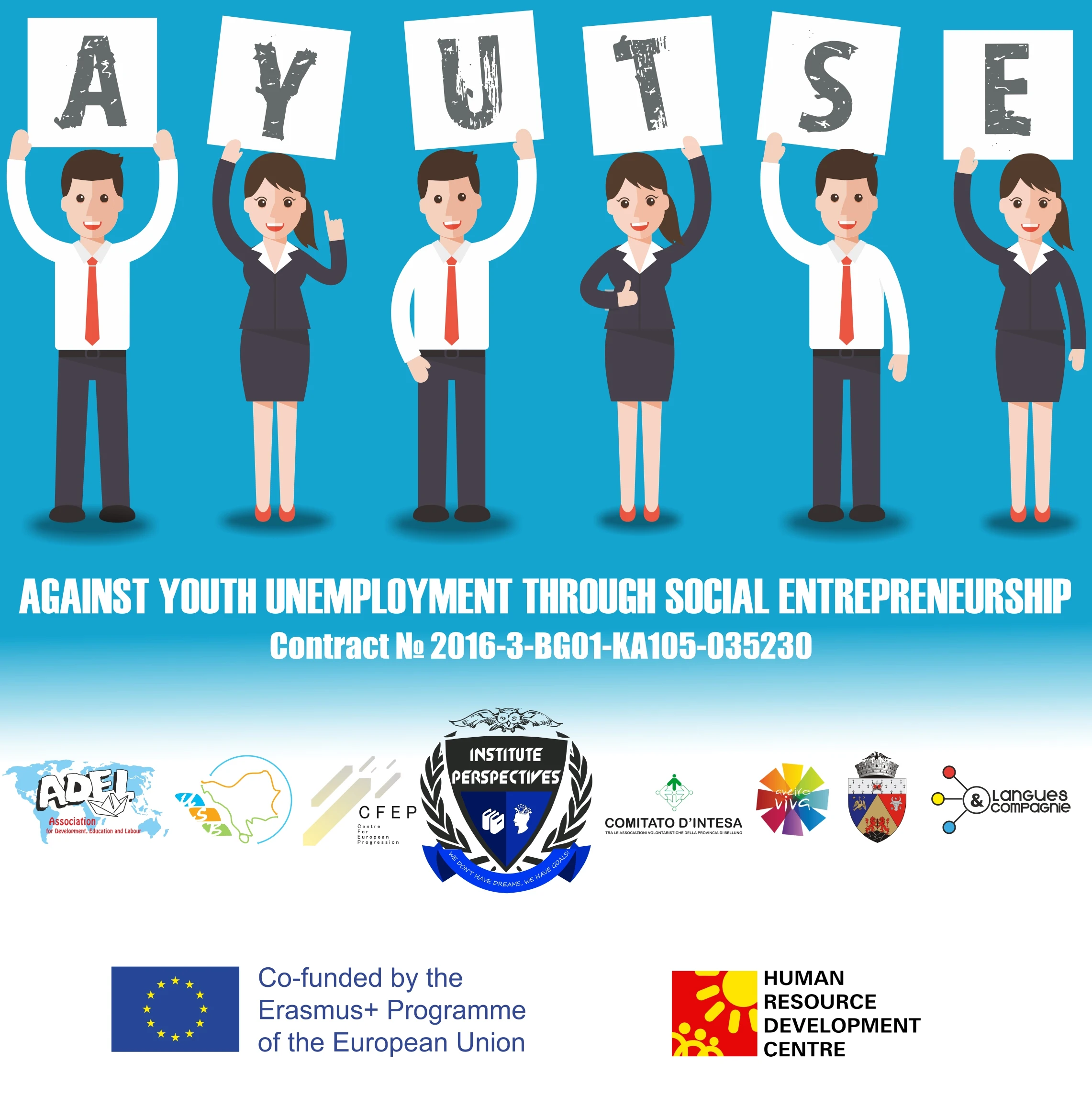
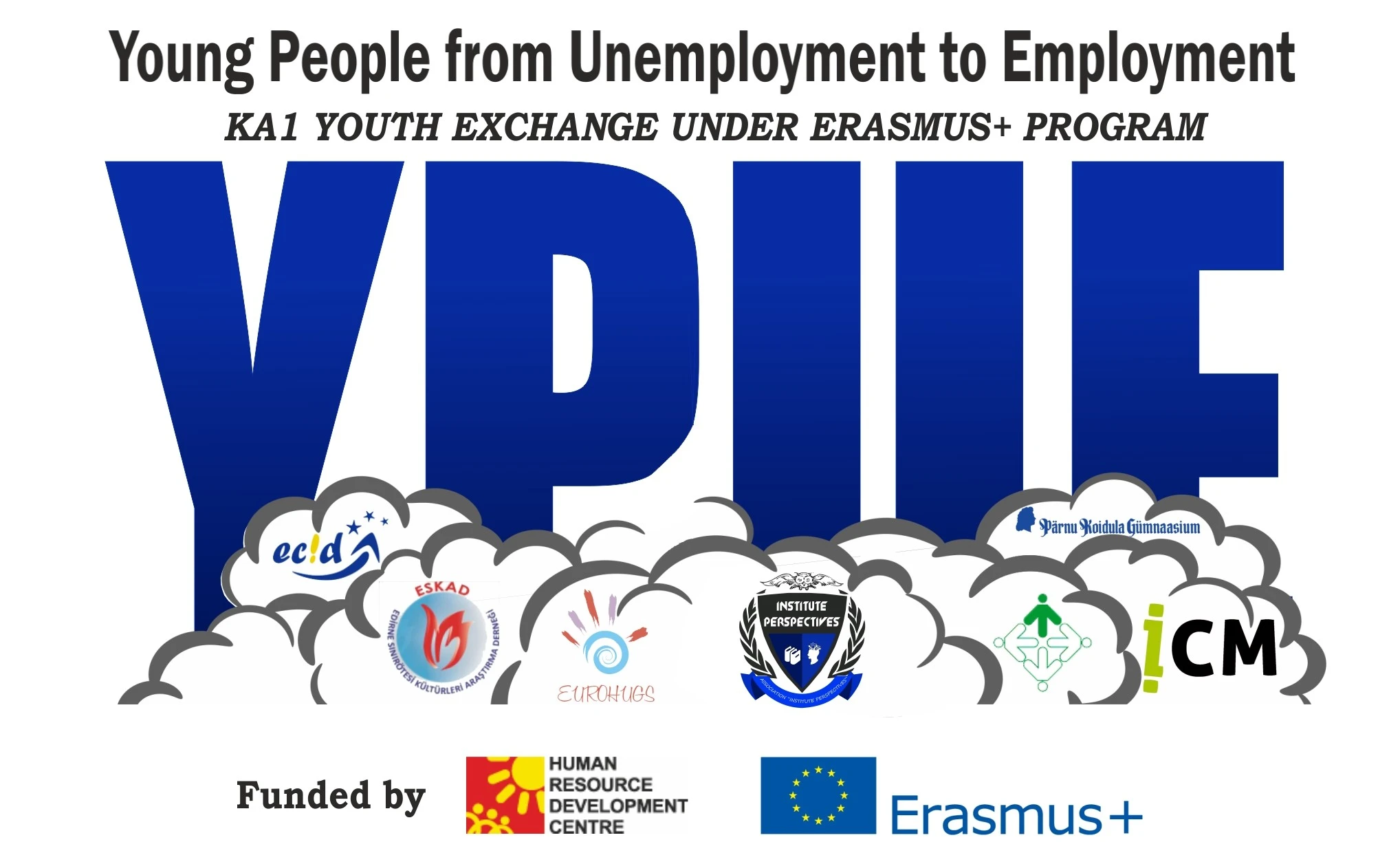
In the rich mosaic of Europe, the Handbook emerges as a collaborative creation by university scholars and young minds from Bulgaria, Italy, Estonia, Lithuania, Poland, the Czech Republic, and Turkey. Its mission is to arm aspiring young entrepreneurs with essential theoretical knowledge, addressing the pressing challenge of youth unemployment across Europe. This volume encourages the youth to venture beyond traditional education and qualifications, urging them to innovate and contribute to the economic and social spheres of the continent.
The Handbook addresses youth unemployment not just as an economic issue but as a lack of enterprise, emphasizing the need for young Europeans to actively engage in public and economic life. It presents entrepreneurship as a multifaceted concept, essential in every personal endeavor. The scale of youth unemployment demands action at various societal levels and requires the integration of youth potential into meaningful initiatives.
Through this book, the Institute Perspectives and its allied organizations aim to provide a practical tool to help young people navigate and overcome the challenges posed by high unemployment levels in the European Union. This work is more than a guide; it is a strategic call to the youth to direct their energies into constructive projects, ensuring the prosperity and unity of the European community.
FINANCIAL LITERACY THROUGH NON-FORMAL EDUCATION AND LEARNING IN NATURE
The guideline is a unique training resource aimed at educating participants about the significance and practical application of finance in daily life, while fostering their growth in economics and financial management. This guideline is particularly innovative in countries like Bulgaria and The Republic of North Macedonia, where youth work and non-formal education are still in nascent stages.The project involves three diverse organizations committed to European integration, pooling their resources and expertise. A notable aspect of this initiative is the inclusion of interns from the Institute Perspectives, hailing from Spain and Indonesia, who were given the opportunity to fully engage in the activities in Svishtov, including the “Danube Survivor” educational format, without prior preparation.
This decision was part of an exploratory approach to innovate the methodology developed by Institute Perspectives since 2017. The method focuses on leveraging the natural, cultural, and historical assets of the region. The activities in Svishtov were structured around outdoor educational sessions, visits to cultural and historical sites in the Svishtov and Veliko Turnovo areas, and brainstorming sessions for product ideas that could potentially create jobs. These interactions laid the groundwork for future projects in emotional, cultural, and educational tourism. A central element of the program was the Danube River, historically significant to the development of Svishtov. By involving young people from Austria, Northern Macedonia, Indonesia, Spain, and Bulgaria in diverse scenarios related to Svishtov, the Institute Perspectives team gained essential insights and direction for future initiatives. The project not only succeeded in engaging new local partners but also demonstrated the Institute's capability to organize educational initiatives at a European level. The success of the “Danube Survivor for Financial Literacy” hinged on providing appropriate conditions for participants and focusing on updating and adapting existing benefits to initiate new business collaborations.
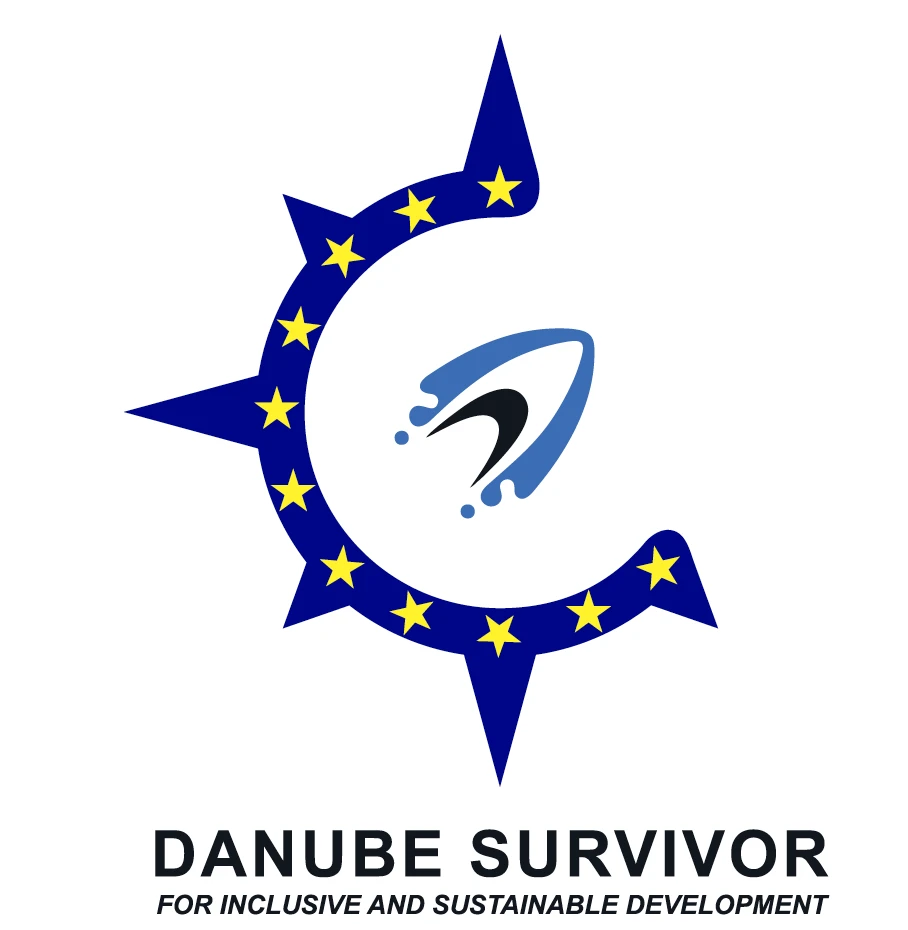
DANUBE SURVIVOR FOR SUSTAINABLE AND INCLUSIVE DEVELOPMENT
This is an innovative approach designed to empower young people in Danube region, who has a rich history yet limited current developmental prospects. This approach seeks to inspire youths to take a leading role and develop competencies for a successful career, leveraging the historical, natural, and infrastructural assets of the region.
The concept of "Survivor" emerges from the need to transform Svishtov from a perceived dull place into a thriving economic, educational, trade, and cultural hub. To achieve this, young citizens are encouraged to be creative, recognize opportunities, and utilize local resources. The main objective is to stimulate Svishtov's revival through the involvement of its youth.
The Danube Survivor initiative, which began as a one-day event in 2017, achieved unexpected success. Motivated by this, the team plans to focus more on developing a structured approach to build dynamic teams from diverse individuals worldwide. This method involves training in nature during spring and summer, aiming to evoke thoughtfulness and a desire to create new tourist and social phenomena. It combines education in history, ecology, and social entrepreneurship, planting the seeds for future growth and prosperity.
The book, a product of this initiative, outlines the main goals of the Danube Survivor and includes practical advice from volunteers and youth coordinators of the Institute Perspectives. It serves as a guide for readers to understand the approach and reflects on individual contributions towards global betterment and prosperity.
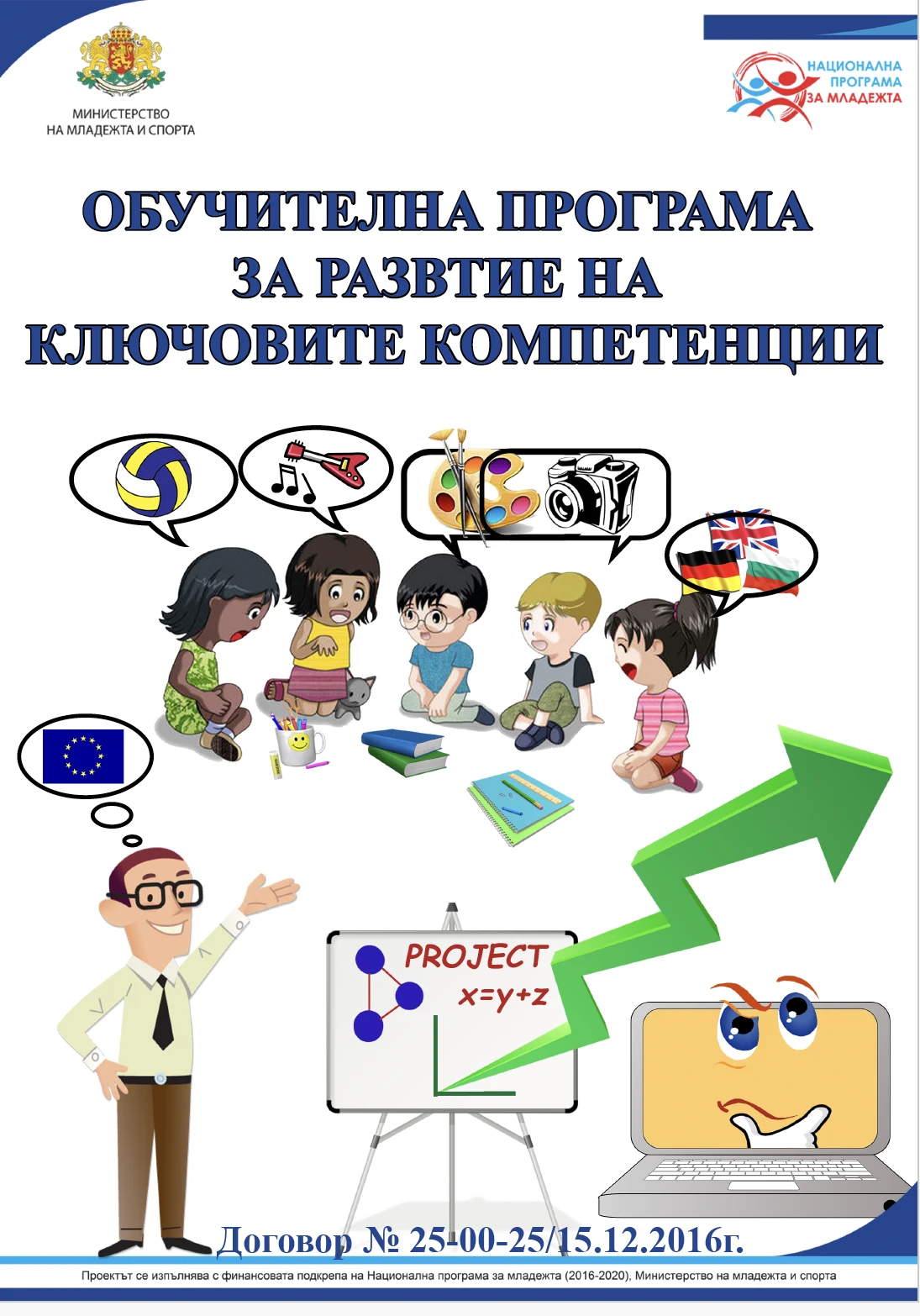
TRAINING PROGRAM FOR DEVELOPMENT OF KEY COMPETENCIES
/ADAPTING NON-FORMAL LEARNING METHODS IN THE FORMAL EDUCATIONAL SYSTEM/"
This book, crafted with passion by youths, teachers, university professors, and experts in non-formal learning and youth work, aims to empower young people to thrive in European society. With a wealth of experience in both formal and non-formal education, the authors, including students from Svishtov schools and youth workers at "Institute Perspectives," have participated in numerous international projects. The book serves as a tool to provide up-to-date information on policies in non-formal learning and youth work, defining key competencies and offering practical non-formal learning techniques adaptable to formal education.
A major challenge in Bulgaria is the limited ability of educators in small settlements to employ non-formal learning methodologies, as well as students' unfamiliarity with key competencies crucial for the labor market. This book addresses the gap by introducing non-formal learning techniques as a mechanism to enhance the assimilation of key competencies and educational material. It counters the misconception that non-formal learning threatens formal education, instead presenting it as a complementary approach that enhances effectiveness and creates a more conducive learning environment.
The program shared in this book is a step towards equipping pedagogical staff and youth workers with the tools needed for effective youth education. It emphasizes the importance of diverse skills such as language proficiency, proper learning methods, mathematical skills, technological adeptness, internet resource management, communication, teamwork, entrepreneurial spirit, and cultural acceptance. These skills are essential for young people to become successful individuals in the 21st century.

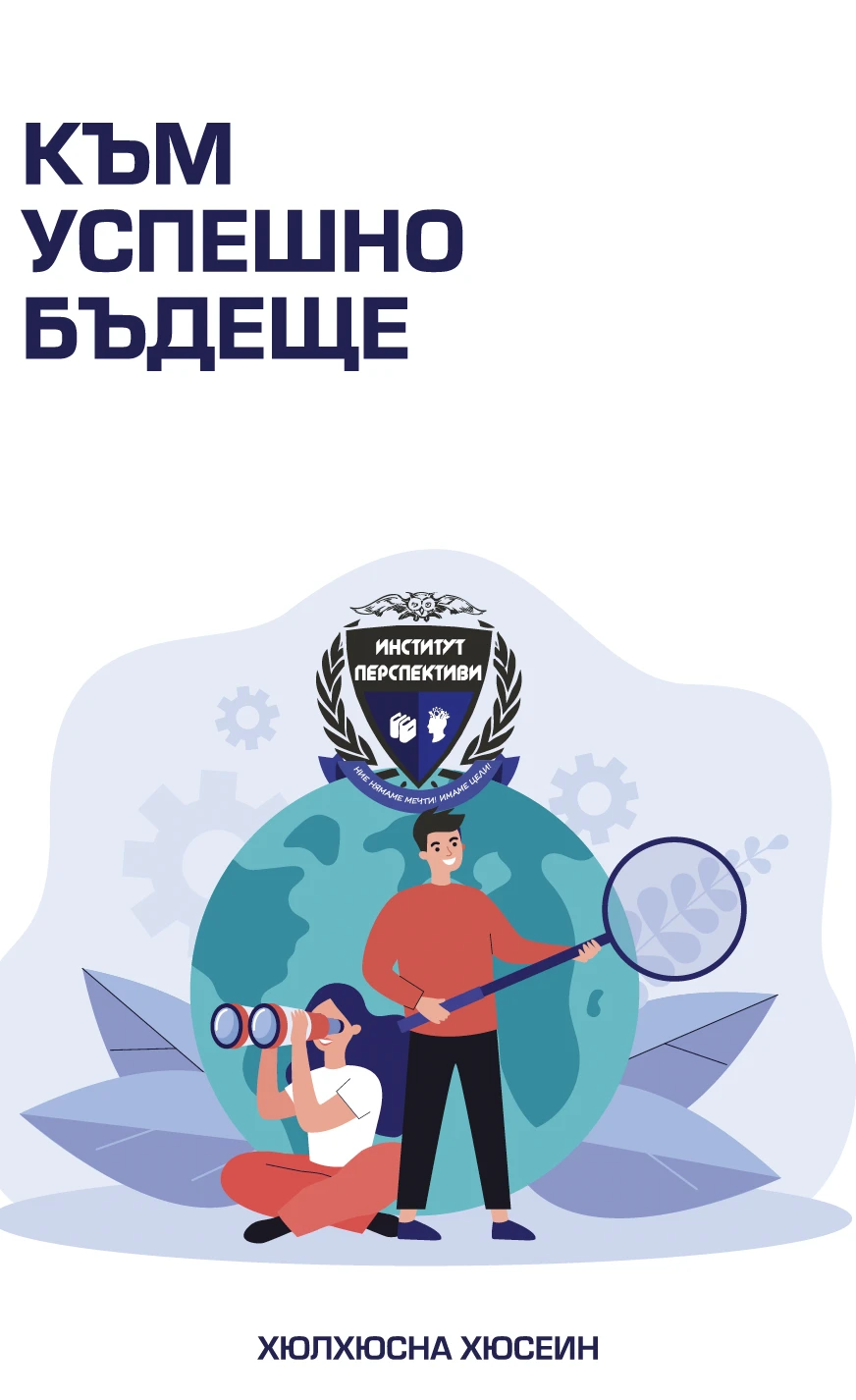
TOWARDS A SUCCESSFUL FUTURE
CAREER GUIDANCE
In this book, the significance of choice and the potential within each of us is explored. Naturally, the environment into which we are born can be supportive or less so, but it is crucial to appreciate what our caregivers have done for us. Every action is a reflection of an individual's best capabilities at any given moment.
The book emphasizes the importance of gratitude for the life we have and the right to make key choices in it. Not everything is predestined – we have the freedom to choose our partners, friends, and profession, which are fundamental in determining our standard of living.
The main focus of the book is on choosing a profession and how this can align with our value system to lead a fulfilling and satisfying life. Various techniques are presented to aid in better self-understanding and insight into what we can contribute to the world. Thus, the book is aimed at assisting in making informed and conscious decisions in one's professional life.